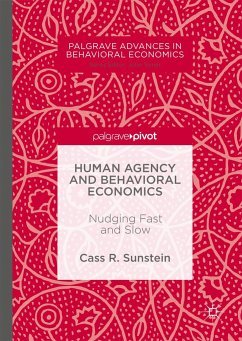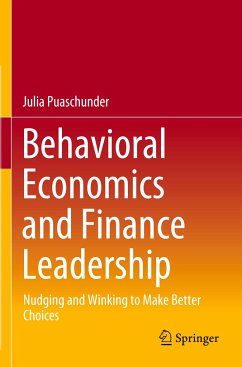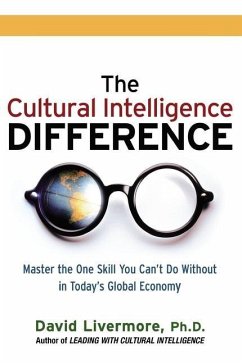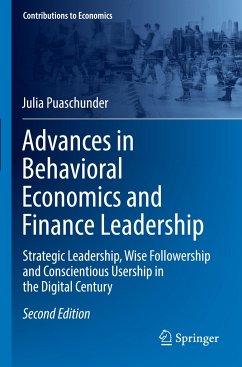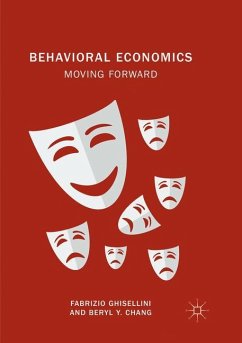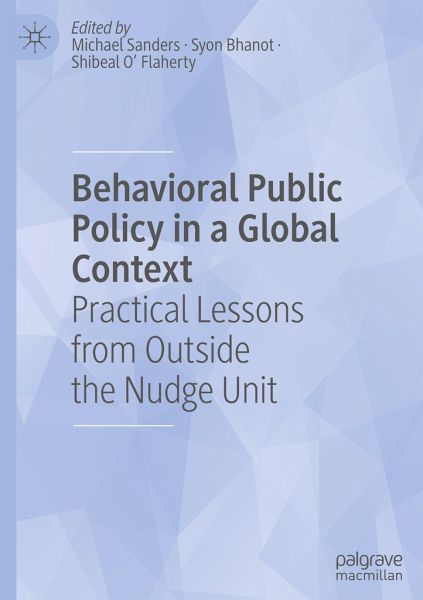
Behavioral Public Policy in a Global Context
Practical Lessons from Outside the Nudge Unit
Herausgegeben: Sanders, Michael; Bhanot, Syon; O' Flaherty, Shibeal

PAYBACK Punkte
76 °P sammeln!
The academic field of behavioral science has developed rapidly in recent decades. The field draws on research from across the social and natural sciences, and it has consistently shown that humans are not always rational.This insight has had a profound impact on multiple fields, including economics, political science, and law. Since the early 2000s, the application of behavioral science to public policy has also grown exponentially. Policymakers and practitioners now regularly use behavioral science to rethink how they develop programs and solve social problems. The impact has been far-reachin...
The academic field of behavioral science has developed rapidly in recent decades. The field draws on research from across the social and natural sciences, and it has consistently shown that humans are not always rational.
This insight has had a profound impact on multiple fields, including economics, political science, and law. Since the early 2000s, the application of behavioral science to public policy has also grown exponentially. Policymakers and practitioners now regularly use behavioral science to rethink how they develop programs and solve social problems. The impact has been far-reaching; behavioral science has transformed how we think about the economy, public health, education, and beyond. In practice, behavioral insights have been used to raise tax revenues, help people access social welfare program benefits and employment opportunities, increase voter turnout, boost medication adherence, and more.
There are now hundreds of entities - international organizations, governments, business, and nonprofits - building and investing in internal behavioral science teams. Unfortunately, most of the hard work of putting these teams together and applying behavioral science insights happens "behind the scenes." This book unearths some of the stories and insights from pioneers in applied behavioral science, in their own words. How did their teams come about, and how did they grow? What projects have worked, and which have not? What have they learned, and what would they recommend to others seeking to build behavioral science teams of their own?
This insight has had a profound impact on multiple fields, including economics, political science, and law. Since the early 2000s, the application of behavioral science to public policy has also grown exponentially. Policymakers and practitioners now regularly use behavioral science to rethink how they develop programs and solve social problems. The impact has been far-reaching; behavioral science has transformed how we think about the economy, public health, education, and beyond. In practice, behavioral insights have been used to raise tax revenues, help people access social welfare program benefits and employment opportunities, increase voter turnout, boost medication adherence, and more.
There are now hundreds of entities - international organizations, governments, business, and nonprofits - building and investing in internal behavioral science teams. Unfortunately, most of the hard work of putting these teams together and applying behavioral science insights happens "behind the scenes." This book unearths some of the stories and insights from pioneers in applied behavioral science, in their own words. How did their teams come about, and how did they grow? What projects have worked, and which have not? What have they learned, and what would they recommend to others seeking to build behavioral science teams of their own?







